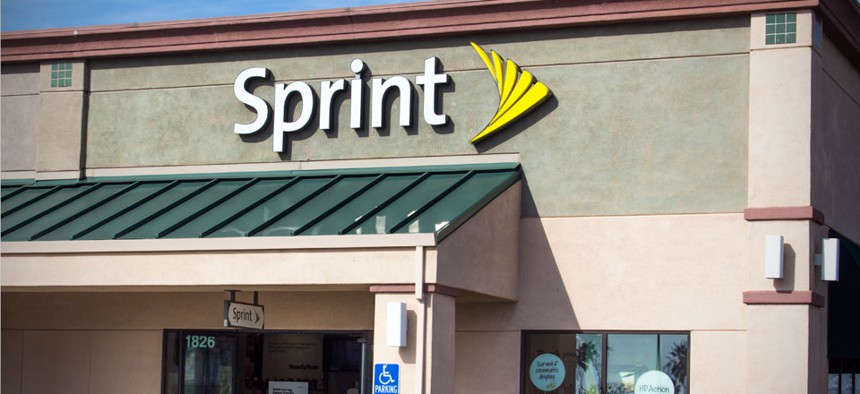This Phone Company is Switching Sides in the Net Neutrality Debate

Ken Wolter/Shutterstock.com
The move undercuts Verizon, AT&T, and Comcast in their battle against the FCC.
The major Internet providers have all been warning for months that if the government classifies them as public utilities, it will strangle their industry with onerous regulations and leave everyone with worse Internet service.
On Friday, Sprint changed its mind.
In a letter to the Federal Communications Commission, Stephen Bye, Sprint's chief technology officer, said the company no longer believes that a "light touch application" of utility authority "would harm the continued investment in, and deployment of, mobile broadband services."
"So long as the FCC continues to allow wireless carriers to manage our networks and differentiate our products, Sprint will continue to invest in data networks," Bye wrote.
The letter badly undercuts Verizon, AT&T, and Comcast, who have been fiercely lobbying to keep the FCC from going too far with its planned net-neutrality regulations. The worst-case scenario for those companies is if the FCC classifies broadband Internet as a "telecommunications service" under Title II of the Communications Act.
The broadband providers and cellular carriers have warned that the classification would force them to slow down or stop investing in their networks.
Harold Feld, the senior vice president of consumer advocacy group Public Knowledge, said that Sprint switching sides in the dispute will have a "huge impact" on the net-neutrality debate.
"It significantly erodes the argument from the carriers that Title II is death to investment," Feld said.
Net-neutrality advocates have been urging the FCC to use its broad powers under Title II, saying it's the only way the FCC can enact rules that can hold up in court. Net neutrality is the principle that all Internet traffic should be treated equally and that users should be able to access whatever online content they want.
In November, President Obama endorsed the Title II option for net neutrality, and FCC Chairman Tom Wheeler now appears to be planning to invoke the provision.
The FCC already uses Title II to regulate landline phones and traditional voice calls on cell phones. But home broadband service and data service on smartphones have been exempted.
So why did Sprint break ranks?
Feld explained that Title II would not only give the FCC stronger authority to enforce net neutrality but could also help Sprint better compete with its bigger rivals, Verizon and AT&T.
Because Sprint has a smaller network, it sometimes needs to pay Verizon and AT&T to let its customers connect to their cell towers. Verizon and AT&T also operate the landline telecommunications networks that Sprint often has to use to transfer its customers' data. Cell-phone data first connects to nearby towers, but then travels over traditional landlines.
Title II would give the FCC broader authority to force the big carriers to charge only "just and reasonable" rates to smaller carriers like Sprint.
"I think Sprint has looked at it and said, 'Title II is bad if you think you're going to be king of the mountain and going to be able to corner the market," Feld said. "And it's good if you think someone else is going to be king of the mountain and going to be able to corner the market."
Walter Piecyk, an industry analyst for BTIG, agreed that Sprint likes Title II for reasons beyond net neutrality—but he suggested the company is trying to exploit the issue.
"Sprint has underinvested in critical network elements like backhaul and coverage and is now hoping the FCC will bail them out with rate regulation," Piecyk said.
Even before Sprint's letter, all signs were indicating that the FCC planned to use Title II for net-neutrality rules. So the company may have figured it was a smart move to jump on the bandwagon and earn some good will with its regulator.
(Image via Ken Wolter/Shutterstock.com)
NEXT STORY: Survey reveals feds' digital divide






